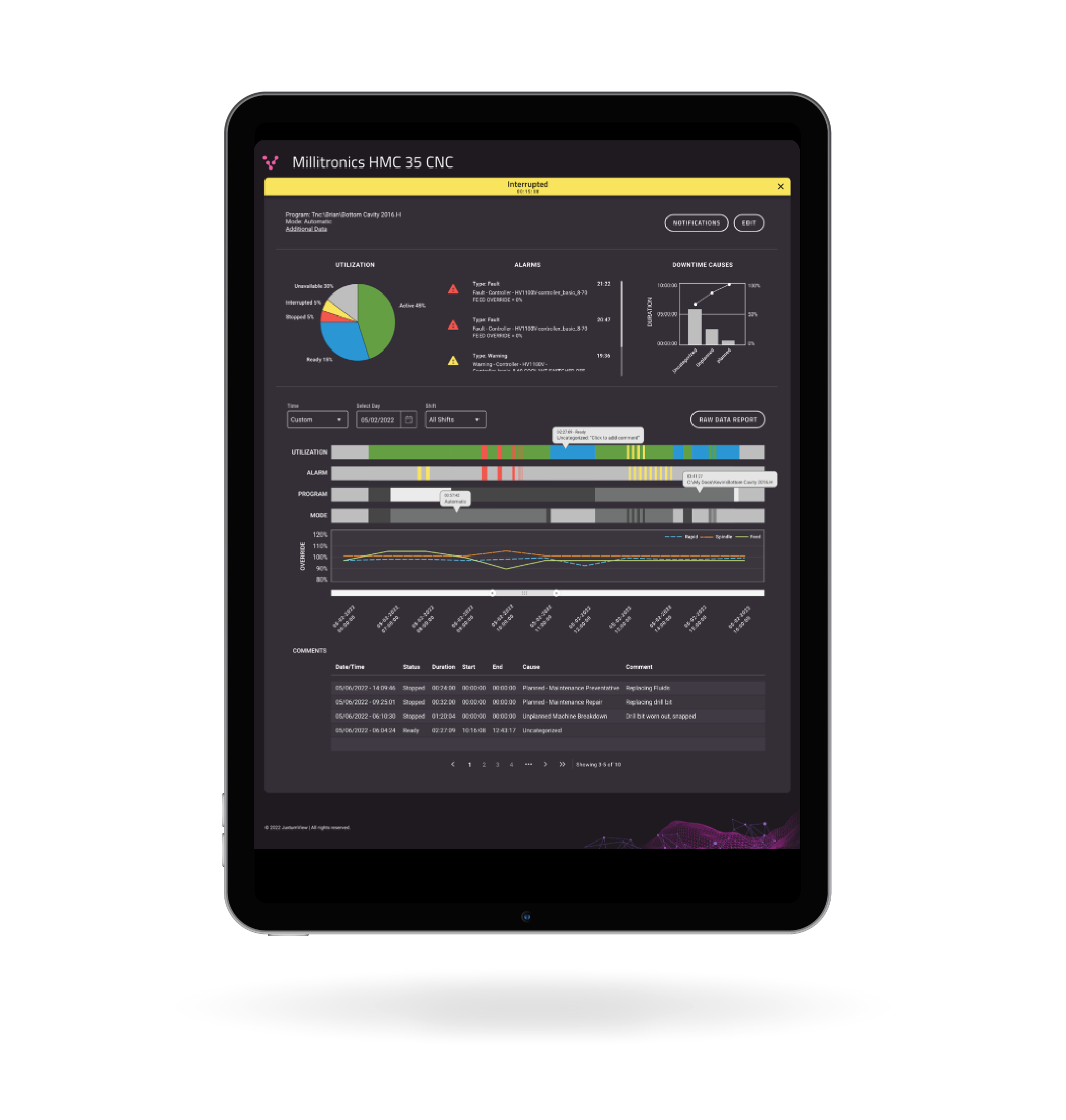Why Standardized Data Matters
Why is it so important to have standardized data in manufacturing?
Consider an analogy from the automotive world. Although there are many car and truck manufacturers over the world, each uses proprietary parts, sensors and computer operating systems in their vehicles. However, incident code language that those vehicles use to report their operational status is standardized. This means whether you drive a Ford F-150, a Mercedes S-class luxury sedan, or a Honda Civic, if you leave your gas cap off at the station and see a ‘Check Engine’ light, any mechanic you turn to will be able to plug in a standard reader device, pull the code and tell you what caused the alarm.
You can see why standardized utilization and status data might be beneficial in an industry like manufacturing. There are many machine tools, robots, sensors and operating system providers, all constructing equipment that can be used for a wide range of applications over an even wider variety of settings.
That’s essentially what the impetus was for developing an open manufacturing data standard like MTConnect®. Today, let’s look back at its development history and discuss how it’s making life easier for manufacturers of all sizes and industries.
What is MTConnect and when was it developed?
Developed over the past decade, MTConnect is “a semantic vocabulary for manufacturing equipment” that provides “structured, contextualized data with no proprietary format. With uniform data, developers and integrators can focus on useful, productive manufacturing applications, rather than translation,” wrote its developers.
MTConnect‘s development has been driven by the Association for Manufacturing Technology and the not-for-profit MTConnect Institute. In May 2018, the MTConnect Institute was approved as an ANSI Accredited Standards Developer (ASD).
“The MTConnect Institute is collaboratively guided by the standards committee,” explained Ron Pieper, Juxtum’s customer support manager. “This is a place where you see machine tool builders and software manufacturers sitting side by side and discussing issues with no competitive barriers whatsoever.”
That independent, collaborative environment is made possible by each participant’s belief in the vision for the standard — namely, that all manufacturers’ needs must be put before individual business goals — and in their adherence to a framework that fosters trust.
“Before every meeting, we have to agree that we won’t divulge proprietary information and that we’ll respect each other’s privacy,” he said.
The need for data standardization has been a natural consequence of smart manufacturing.
As digital manufacturing technologies proliferate, and as their various capabilities expand, there’s a clear need for machines and sensors to be able to talk to each other — and to providers up and down the supply chain — to create logistical transparency. Original equipment manufacturers (OEMs) and subcontracting vendors alike need the ability to connect a mixture of new and legacy units and get various manufacturers’ machines communicating with each other. On the logistical side, they also need the ability to leverage digitization to optimize input delivery schedules, maintain profitable production, conduct root cause analyses and improve processes.
MTConnect’s standardized language allows them to accomplish all those tasks. As a result, it’s becoming a popular go-to for manufacturers serving several industries.
“It’s a common solution,” observed Pieper. “Aerospace, medical device manufacturers, and automotive are all picking it up. We’re seeing it expand into Europe.”
“It’s a versatile standard. Although it’s very well defined as far as semantics, hierarchies and data items, it’s also open in that you can define additional data to customize to your particular needs,” he said.
“The standard provides objective data. It’s simply facts; it’s what happened,” Pieper noted. “It doesn’t tell you the root cause, but it does lead you in determining what the root cause is so that you can find a solution based on the facts.”
Objectivity is important, he said, because it keeps process improvement from being impeded assumptions, human errors, or agendas.
“It gets you further toward having a closed loop in the sense of productivity, process consistency and maintenance,” stated Pieper.
Learn how data standardization could benefit your manufacturing operation.
Curious how MTConnect adapters could improve your manufacturing efficiency and profitability?
Contact Us and tell us about your pain points and your connectivity efforts to date. We’ll listen and provide you with actionable information you can use to determine your next steps.


